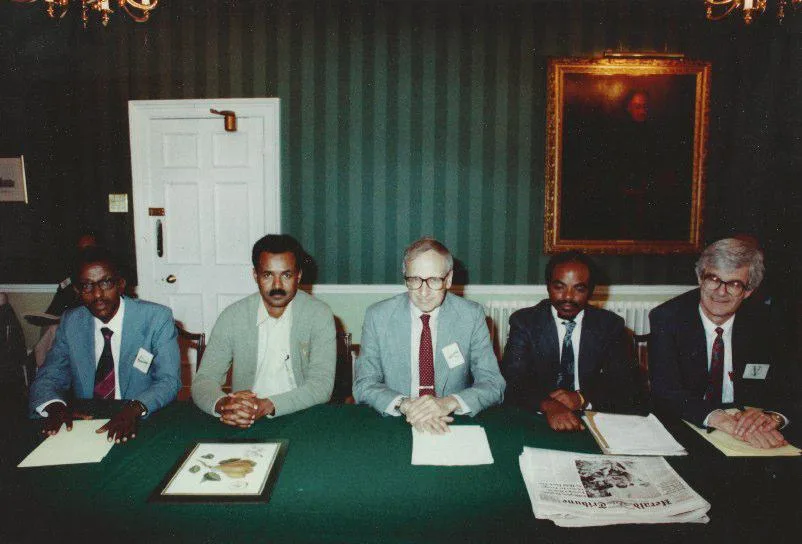|
Getting your Trinity Audio player ready...
|
Addis Standard, an English political news outlet based in Ethiopia, published remarks that Ethiopian Prime Minister Abiy Ahmed made during a parliamentary session held on November 14, 2023.
PM Abiy argued in his remarks that the government’s intention has always been peace and claimed that no war or conflict was initiated by the government within the past five years.
PM Abiy further argued that the government was merely defending itself against groups attempting to forcibly overthrow it. The PM’s remarks came in light of the current negotiations between the Oromo Liberation Army and the Ethiopian government.
On the same day, Oromia National Media (ONM), via its Telegram channel, released a detailed report describing an Ethiopian military attack on Irreechaa celebrations at Malka Daabana Darroo, Bedelle, in Western Oromia.
Irreechaa is part of a monthly ritual that is traditionally observed by Oromos across Oromia. According to the report, 23 people were arrested at the Irreechaa gathering and others who were observing the festival were beaten, their charge was singing political songs.
Many argue that the Oromo political question can find an answer through the current government. It is partly this argument that is giving weight to the narrative that says that the Oromo Liberation Army (OLA) must disarm. The state’s celebration of Irreechaa earlier this year was also crucial to building this narrative.
Irreechaa celebrations in Finfinnee and Bishoftu were spectacular. Indeed, it saw a widespread participation of the Oromo society, and reflected the extraordinary beauty of a diverse Oromo culture. However, this spectacle can in no way be taken as evidence of an intention by this regime to develop a genuinely democratic relationship to the masses in Oromia specifically or in Ethiopia generally.
The kind of homogeneity that the Ethiopian state is after requires an assault on any alternative expressions of political life that challenge the state as the ultimate authority over the way society operates. If the Oromo negotiate with this state about the political future of Oromia, a political future if developed as per the political principles ancient to the Oromo’s civilisation has the potential to become a truly democratic, plural society, then handing over all means of self-defense to the state, no matter what the state concedes in return, is ill-advised.
Furthermore, entering into an agreement that requires that Oromia become defenceless must be called what it is: surrender.
The OLA through its leadership finds itself in a seemingly impossible position. The Ethiopian government evident in the remarks made by its leader days before the start of the second round of negotiations refused to take any responsibility for the crisis that Oromia faces and framed the conflict in Oromia as existing only due the OLA’s refusal to disarm.
If successful, it will shape public opinion to a narrative that argues “peace” became possible because of the OLA’s choice to disarm, and ignores an important factor of the conflict: the Ethiopian state’s hostilities towards political life in Oromia and beyond.
The manipulation employed by the regime here which puts immense pressure on the OLA is the argument that the OLA are unwilling to put aside their own interests to see an end to Oromo suffering. All the while ignoring the fact that the mere existence of Oromo society is political enough for the state to retaliate violently, regardless of whether the OLA is armed or not.
So what is the solution?
In a world where the contemporary nation-state is the main political system used to facilitate violent capitalist extraction, societies with ancient and indigenous relationships to land and life can not afford to be without means of protecting their ways of life. We, the Oromo, and all other autonomous political-cultural groups within the Ethiopian state, must re-articulate the reason that we take up arms.
We can not and should not fight to “beat“ the presiding government and its nationalism so that we, and our own nationalism, take power over the state apparatus, and when we can’t win, we disarm.
Rather, through political education of our societies, we should encourage the organization and development of our societies’ political life, characterised by the maximum level of democratic, grassroots decision making. We should be armed to defend the process of building and developing society.
To defend ourselves against the psychological warfare of statist propaganda, we should organize in defense of our society’s natural right to organize itself autonomously from the centralizing grip of the state.
The Ethiopian state has made it abundantly clear that it has no intention of ending the use of violence; rather, it desires a monopoly over its means.
In a world where militarism reigns supreme, from Ukraine to Israel, we can not let the Ethiopian state achieve this monopoly of violence in Oromia and settle for a political settlement for disarmament. Instead, we should work on strengthening and equipping society with the capacity to organize political life. This is a task that goes far beyond arms.
